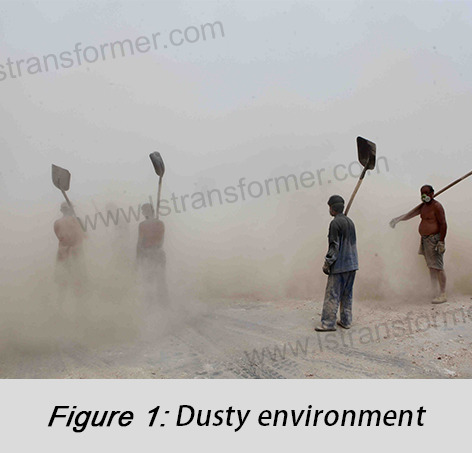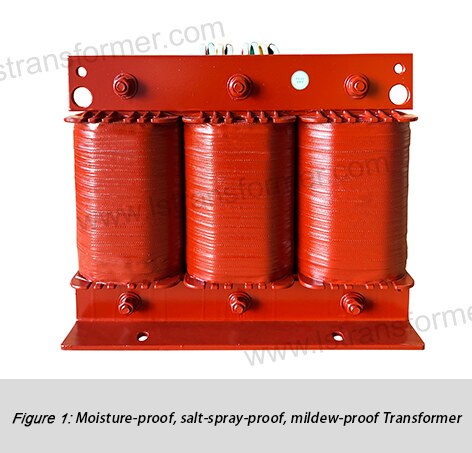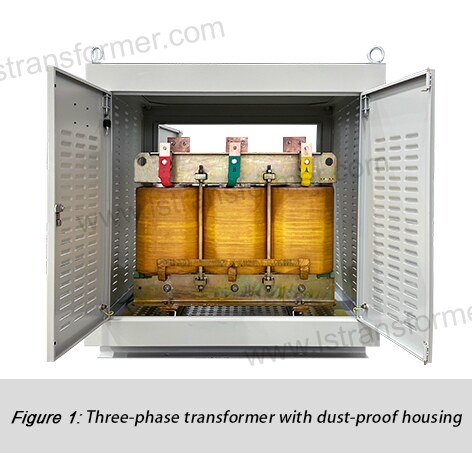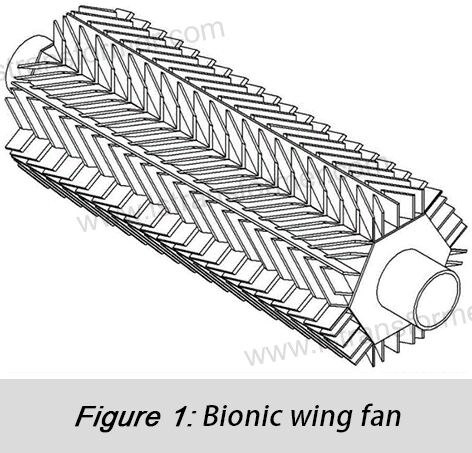Why Do Chemical Plant Transformers Fail Within 2 Years? —Key Solutions for Corrosion & Dust Prevention
Why Do Chemical Plant Transformers Fail Within 2 Years?
—Key Solutions for Corrosion & Dust Prevention
Under global industrial efficiency upgrades and stricter environmental regulations, transformer lifespan management in chemical plants has become a critical challenge.
Statistics from the International Energy Agency (IEA) reveal that chemical plant transformers face an annual scrap rate of 15%–30%—far exceeding the 5% rate in other industries—causing over $5 billion in global economic losses yearly.
This article analyzes the root causes of premature transformer failure and provides actionable solutions to extend their lifespan from 2 years to 10+ years.
Content
1. Core Causes: Three Environmental Threats Accelerating Transformer Failure
●Dust Erosion: Dual Threats of Overheating & Insulation Breakdown
Chemical plants often have dust concentrations exceeding 200 mg/m³ (10x the WHO limit). Dust accumulation on cooling fins reduces heat dissipation by 40%, raising winding temperature from 45°C to 75°C. According to the IEC 60076-7 thermal aging model, every 8°C temperature rise cuts insulation lifespan by 50%.
•Case Study: A U.S. chlor-alkali plant suffered a $1.2 million loss when dust infiltration dropped insulation resistance from 5,000 MΩ to 50 MΩ, triggering flashover and transformer burnout.
● Chemical Corrosion: Chlorine (Cl₂) & Hydrogen Sulfide (H₂S) Attacks
Corrosive gases react with transformer casings (e.g., Fe + 2H₂S → FeS₂ + 2H₂↑), accelerating corrosion rate to 1.2 mm/year vs. 0.01 mm/year in normal environments.
•Example: In a German sulfuric acid plant, SO₂ exposure caused epoxy resin molecular chains to break, reducing impact strength from 18 kJ/m² to 5 kJ/m². Cracks appeared in 3 years, shortening lifespan by 70%.
●Humidity & Salt Spray: Deadly Combo of Condensation and Corrosion
Coastal plants with >85% humidity face salt spray corrosion rates 10x higher (per ISO 9227). A Japanese pesticide factory lost $800k due to conductive sludge from salt spray and dust, causing creepage discharge and a 48-hour shutdown.
2. Solutions: 4 Core Technologies to Extend Transformer Lifespan
● Triple Sealing System: Block Contaminants at the Source
•Use 304 stainless steel (IP65-rated)+ fluorocarbon coating to reduce Shell Corrosion Rate by 90%.
•Advantage: 304 stainless steel contains 18% chromium and 8% nickel, offering superior chloride resistance vs. carbon steel.
● Nano-Surface Coating: Molecular Defense Against Corrosion
•Plasma-sprayed Al₂O₃-TiO₂ ceramic coatings(50μm thick) enhance acid/alkali resistance by 8x (per ASTM B117).
•Case Study: An Australian chlor-alkali plant extended transformer lifespan from 2 to 10 years using this technology.
●AI-Driven Monitoring: Predictive Maintenance
•Deploy multi-sensor systemsto track Dust concentration (0–500 mg/m³), H₂S levels (0.1 ppm detection limit), and temperature (±0.5°C accuracy). AI algorithms predict insulation degradation risks.
●Optimized Cooling Design: Combat Dust & Overheating
•Biomimetic fins + positive-pressureventilation improve Heat dissipation efficiency by 40% and block dust ingress (certified by EN 60076-11).
•Result:A Chinese coastal plant reduced annual cleaning costs by 60%.
3. Global Success Stories & ROI Analysis
Project | Solution | Outcome |
U.S. Chlor-Alkali Plant | 304 Stainless Steel + Nano Coating | Lifespan: 2 → 8 years; ROI: 3 years |
German Sulfuric Acid Plant | Graphene Epoxy + AI Monitoring | Maintenance costs ↓70% |
Japanese Pesticide Plant | Biomimetic Cooling + Ventilation | Cooling efficiency ↑40%; Energy costs ↓25% |
In Summary
The short lifespan of chemical plant transformers stems from dust, corrosion, and humidity. By adopting IP65 sealing, nano-coatings, AI monitoring, and optimized cooling, companies can extend transformer lifespans to 10+ years while slashing maintenance costs by 50%–70%. Aligned with IEC and ISO standards, these solutions enhance operational safety and support the industry’s transition to sustainable, carbon-neutral practices.
Contact Us
LuShan, est.1975, is a Chinese professional manufacturer specializing in power transformers and reactors for50+ years. Leading products are single-phase transformer, three-phase isolation transformers,electrical transformer,distribution transformer, step down and step up transformer, low voltage transformer, high voltage transformer, control transformer, toroidal transformer, R-core transformer;DC inductors, AC reactors, filtering reactor, line and load reactor, chokes, filtering reactor, and intermediate,high-frequency products.
Our power transformers and reactors are widely used in 10 application areas: rapid transit, construction machinery, renewable energy, intelligent manufacturing, medical equipment, coal mine explosion prevention , excitation system, vacuum sintering(furnace), central air conditioning.
Know more about power transformer and reactor :www.lstransformer.com
If you would like to obtain customized solutions for transformers or reactors, please contact us.
WhatsApp:+86 17267488565
Email:sales@hnlsdz.com

 EN
EN
 FR
FR DE
DE ES
ES




